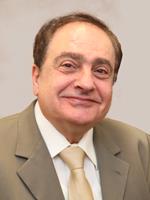- 02 Jun 2016
Islam and Democracy: A Dialogic Evolution
Abstract:
The concept of the rule of law in an open civil society, propounded by a new generation of political activists and members of the intelligentsia, is a promising and highly plausible point of departure. The twin concepts of civil society and the rule of law bring together secular and religious elements, paving the way for the emergence of a new middle class largely imbued with a new civic consciousness capable of reconciling both Islam and Western cultures. Moreover, the idea of discovering a dialogic tradition in Islamic culture is premised on the assumption that the creative impulse of Islam flourishes whenever a positive mode of dialogue is introduced and established. On the other hand, periods of relative decline, regression or stagnation are distinguished by the dominance of a monologist mode.
A dialogue takes place within a certain historical context carried forward by new social groups. A dialogue is a positive sign. Creativity itself presupposes the ability and willingness to borrow assimilate and engage the other in a fruitful, meaningful dialogue. Whereas Islam in its first dialogue engaged pagans, Jews and Christians, in its second dialogue the rich legacy and secular heritage of Persia, India, China, Greece and Byzantium were brought together, studied with care and interest, enriched and turned into a common strand of human ingenuity to be passed on to future generations. This was truly an age of diversity and cosmopolitanism.
No precise cut-off point could be assigned to the conclusion of this age, but beginning with the eighteenth century a certain state of decline was visible or detectable in almost all fields of human endeavour. This state became glaringly obvious when comparisons were made with contemporaneous European societies. In this third phase Modernity has engaged Arabs and Muslims at all levels of their social, political and economic life. On the other hand, since its inception, Islam can be shown to have entered the territory of the other, mingled with its institutions and tried to understand its sources of strength and power. After so many false dawns and repeated failures, democracy has been embraced, sometimes hurriedly and superficially, as an antidote and a new dawn. Nevertheless, this third dialogue, as the preceding ones, has been opposed and questioned by various forces anxious to isolate Islam in the name of authenticity and ever-lasting purity.
It is thus essential to locate Islam, as well as democracy, in their historical and human contexts in order to discover and delineate their early evolution and subsequent development. In other words, it is important to deal with Islam not as a frozen moment in history, be it in its early, middle or late periods, but as an unfolding discourse and movement. Such a discourse, engendered as a process rather than the result of a particular event, contained within it two complementary elements.
About the Speakers

Youssef M. Choueiri is currently professor of Middle Eastern History at the Doha Institute of Graduate Studies. Prior to this position, he was a lecturer in Arabic and Islamic Studies at the University of Exeter, a Reader in Islamic Studies at University of Manchester, and the Director-General of the Centre for Arab Unity Studies. His initial research as a PhD candidate at Cambridge University centred on the emergence and development of modern Arab historiography, with particular reference to the notion of the nation-state. Over the years, his scholarly pursuits widened to include civil society, democracy and the possibility of offering an alternative interpretation of the historical trajectory of Arab Nationalism in the 19th and 20th centuries. Due to the ‘Arab Spring,’ his current research is focussed on the entire history of democracy in the Arab world and beyond. His recent publications include book chapters, “Arabness, Arab Jews and the Arab Spring” in Routledge Handbook of Muslim-Jewish Relations (2016), “Democracy, Nationalism and Religion in the Arab World” in The Struggle to Define a Nation (2016) and “The Arab Spring and the Ameen Rihani” in The Book of Khalid: Critical Edition (2016).




